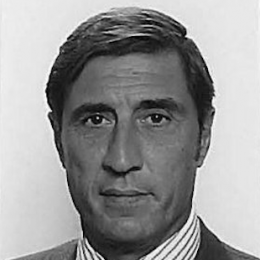-
Spagna
Spain | New limits on company directors’ liability
15 Maggio 2023
- Diritto societario
Accepting the position of director (administrator or CEO) in a Spanish company entails increasing risks. Indeed, the Supreme Court – ruling by ruling – is outlining and interpreting the precepts of the Capital Companies Act (LSC) with an increasingly rigorous and demanding approach when it comes to delimiting the framework of directors’ liability.
Of course, the content of Article 43.1 b) of the General Tax Law is not new at all when it lays the foundations for the subsidiary liability of directors for debts owed to the Tax Agency:
The following persons or entities shall be subsidiarily liable for the tax debt:
b) The de facto or de jure administrators of those legal entities that have ceased their activities, for the accrued tax obligations of these that are pending at the time of the cessation, provided that they have not done what is necessary for their payment or have adopted agreements or taken measures causing the non-payment.
It could be deduced from the reading of the transcribed provision that the subsidiary liability of the directors who, at the time of the cessation of the corporate activity, effectively held the position of director, was established; but that the liability would not reach those directors who had been so in the past but were no longer directors at the time when the company had ceased to act in the legal and economic traffic, for the tax debts pending at that time.
Well, the Supreme Court (Third Chamber) in its recent judgment of March 7th, 2023, hammers one more nail in the coffin of the liability of the directors.
The case that was the subject of the ruling consisted of determining the subsidiary liability to the Tax Agency of a director whose position had expired (due to the expiration of the statutory term) and who had called a general meeting for the appointment of new members of the administrative body of the company.
The Supreme Court understands (and establishes a doctrine for the purposes of appeal) that the director with an expired position does not “exhaust” his obligations with the call of the meeting in question, but must also, pursuant to art. 365 LSC call another general meeting to adopt the resolution to file for insolvency or dissolution due to the existence of the causes of art. 363 LSC a) (cessation of activity) and d) (paralysis of the corporate bodies) as well as, if applicable, the request for judicial dissolution in his capacity as an interested party (art. 366.1 LSC).
The reproachable conduct according to the Supreme Court (which triggers the subsidiary liability) consists in the fact that, facing the cessation of the activity of the company, the only thing he did was to call a meeting for the appointment of a new director and therefore “it did not carry out the necessary acts to be able to face the payment of the tax debts, thus meeting the subjective element necessary to be able to declare its liability”.
The court ruling insists that the condition of director is not lost with the exhaustion of the mandate due to the expiration of the position since the mercantile and fiscal obligations persist; and that the call of a meeting to appoint a new director is not enough to understand that such meeting, once held, deprives the director with expired position of the condition of director, when there is a cause of dissolution that would have obliged to call another meeting with another object and another agenda to agree on the dissolution of the inactive company.
But what is remarkable and striking in this case is that the meeting called by the director (with expired position) for the appointment of new a new director was held in June 2012, the resolutions were made public on March 1st, 2013, they were registered in the commercial registry in July of the same year and the judgment expressly states that the cessation of corporate activity occurred in April 2013 (i.e. when the meeting for the appointment of new administrators had already been held, June 2012, and when the appointment of the new director had already been made public, March 1st, 2013).
The court resolution reads as follows:
“Given the date on which the cessation of the business activity was established by the judgment a quo, April 2013, the appellant should still be considered as a director of the company in that capacity, his conduct should be considered negligent for the purposes of inclusion in the cause of subsidiary liability of art. 43.1.b) LGT”.
The claimant director argued that Art. 222 LSC and Art. 145.1 RRM state that the appointment of directors will expire, among other cases, when the term has expired and the meeting for the appointment of a new director has been held (or the term for its holding has elapsed) that is to resolve on the approval of the accounts of the previous year. And he explained that on top of that, he had fulfilled his obligations as director calling for a general shareholders meeting where new directors were appointed 9 months before the company ceased its activities. Therefore, he no longer was a “director” on April 2103.
Despite of that argument the Supreme Court insists that, whether or not the position has expired, said expiration does not exhaust or extinguish his responsibilities as director, which must be interpreted extensively: it is not enough for him to call a meeting for the appointment of new directors, but he must act to dissolve the company or file for insolvency proceedings, as if the position had full and complete validity.
Thus, after this strong ruling, the directors of Spanish companies, in the event of termination of the activity, even if their position has expired, must know that their liability (and specifically the subsidiary liability for tax debts) will only be released if they call a meeting to dissolve the company, if the meeting does not adopt such resolution, if they request the court for the judicial dissolution or if they file voluntary insolvency proceedings.
To summarize, they will be liable if they do not act in the same way as if their position were still in full force and effect. As we said above, it is necessary to think very much about accepting positions of director of Spanish companies.
























